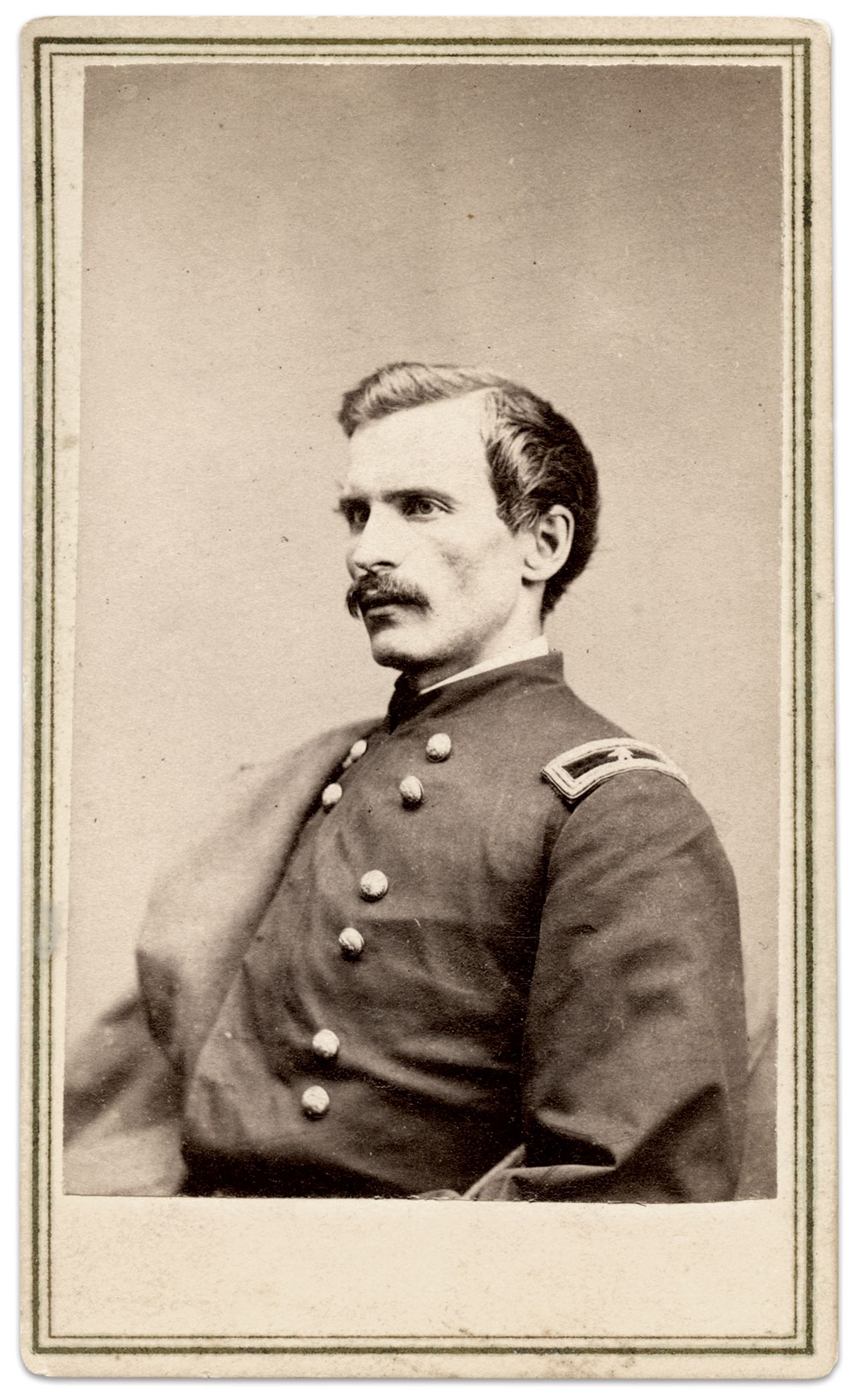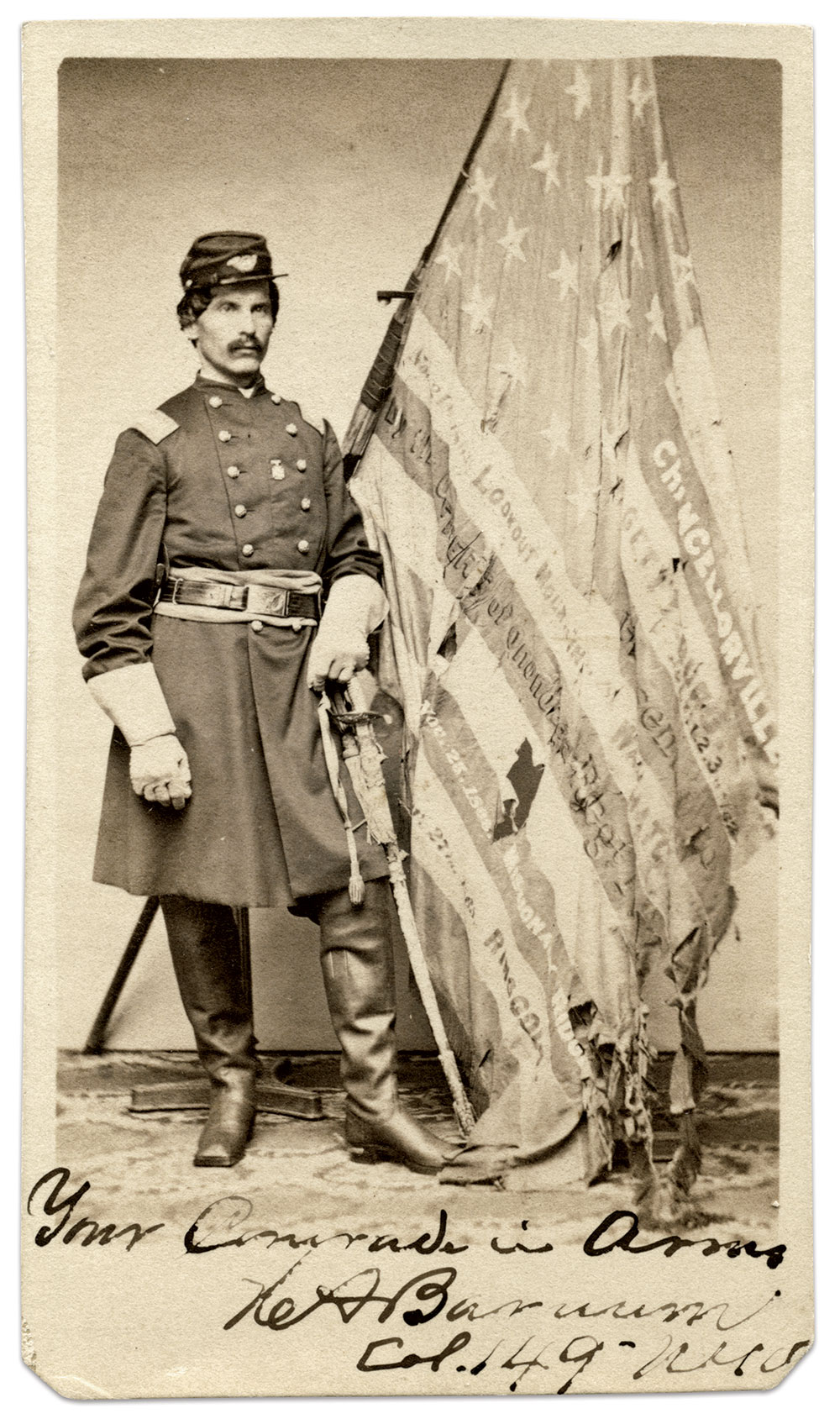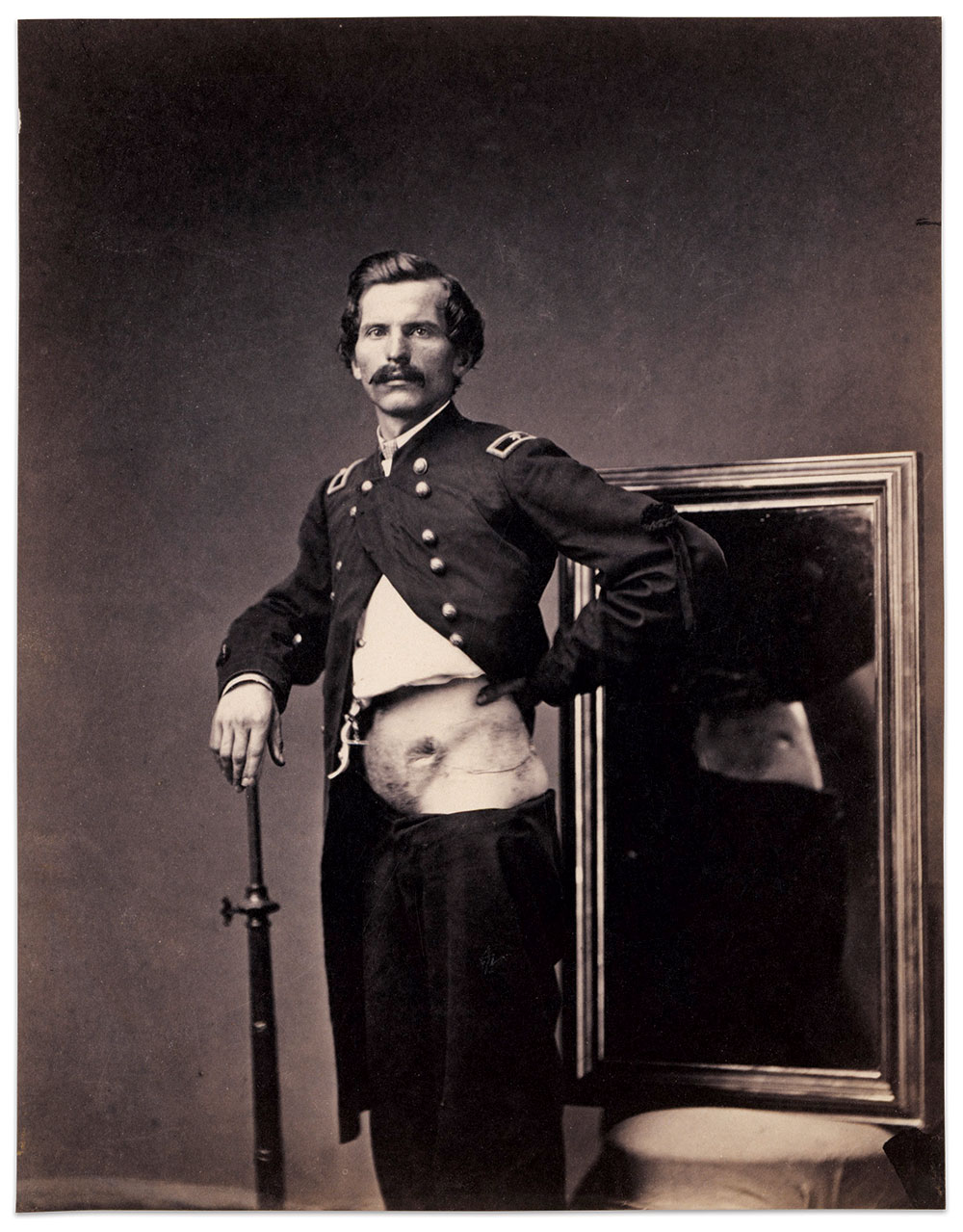
Colonel Henry Alanson Barnum was in no condition to fight at Lookout Mountain. Suffering from an unhealed abdominal wound received more than a year earlier at Malvern Hill and scarcely able to walk, he could have turned over command of his 149th New York Infantry to a subordinate. Unwilling to be left behind and driven by a sense of duty to his men, however, he overcame the pain and led his regiment into action.
About 6:15 in the morning of Nov. 24, 1863, the 238-strong 149th left camp carrying 60 cartridges of ammunition and a day’s rations. Barnum, fueled by adrenaline, pushed to the head of his troops and spurred them forward with words and actions, as the bullets whizzed by with increasing frequency. Exhaustion took its toll and he struggled to keep pace with the advance. As the regiment approached the foot of the towering mountain, a bullet struck his sword arm. Unable to lead, he turned over command to a subordinate and fell back.
Meanwhile, Barnum’s Empire State boys marched on with the rest of their brigade and other Union forces. With a tremendous rush of enthusiasm they swept up and over the slope of Lookout Mountain, driving the enemy before them and winning the day.

Word of Barnum’s actions traveled up the chain of command to Maj. Gen. George H. Thomas. “The Rock of Chickamauga,” as he had become known for preserving the Army of the Cumberland in its most desperate moment, selected Barnum to carry captured rebel battle flags to the adjutant general in Washington, D.C. Barnum left on this special mission in late December and fulfilled his responsibilities despite his precarious health.
Barnum returned to action for the 1864 Atlanta Campaign, where he received his third battle wound; a shell fragment in his right side at Peach Tree Creek. He survived and remained in uniform until the war’s end. He posed for this portrait with the regimental colors decorated with the names of the momentous battles in which he and the 149th participated.
A grateful nation bestowed upon him a brigadier’s star and a major general’s brevet prior to his resignation in 1866. An additional award followed in 1889—the Medal of Honor for Lookout Mountain. A grand reception in Buffalo, N.Y., hosted by former governor Alonzo B. Cornell, was well attended by Grand Army of the Republic members. The invitation card praised Barnum as “a wise, patriotic officer, who has for more than twenty-five years borne with uncomplaining fortitude painful wounds received on the field of battle.”

By this time, Barnum had served successfully in several appointed public offices and as an elected member of the state legislature. He died in 1892 at age 58.
SPREAD THE WORD: We encourage you to share this story on social media and elsewhere to educate and raise awareness. If you wish to use any image on this page for another purpose, please request permission.
LEARN MORE about Military Images, America’s only magazine dedicated to showcasing, interpreting and preserving Civil War portrait photography.
VISIT OUR STORE to subscribe, renew a subscription, and more.

